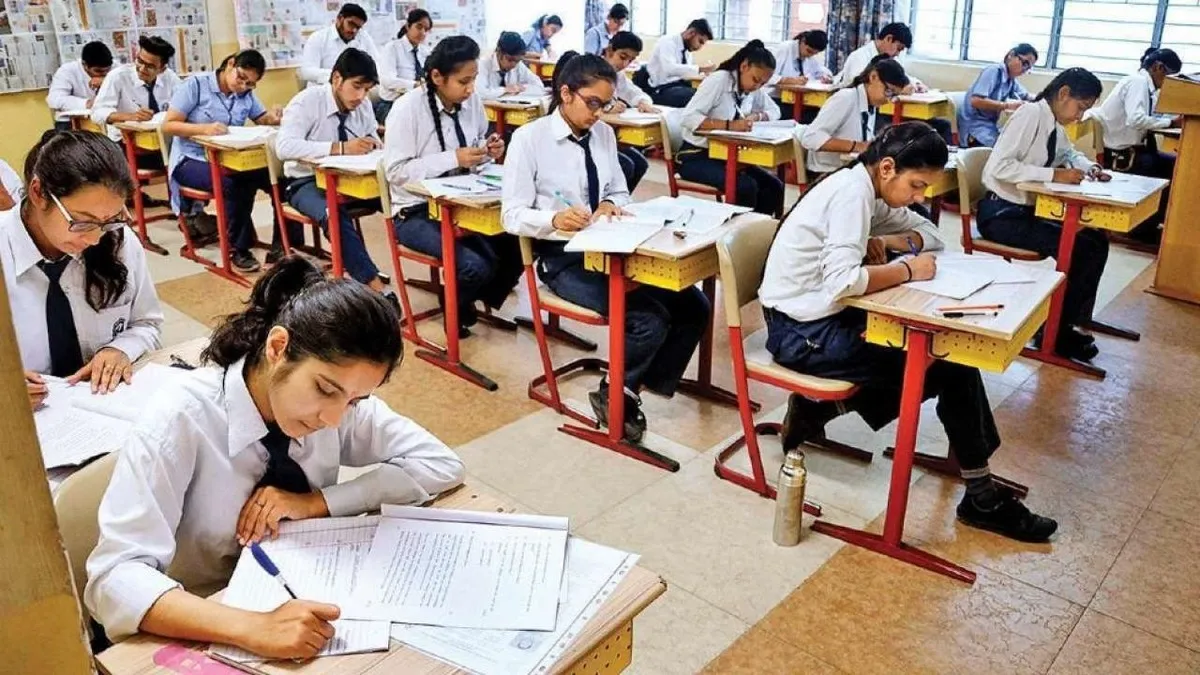01/04/2025
01/04/2025

NEW DELHI, India, April 1: The Central Board of Secondary Education (CBSE) of India has unveiled its updated syllabus for Classes 10 and 12 for the 2025-2026 academic session. This overhaul includes significant changes in exam schedules, grading systems, passing criteria, and the introduction of new skill-based subjects aimed at enhancing the educational experience for students.
Key changes in the new CBSE syllabus:
Two board exams for Class 10 students
For the first time, Class 10 students will have the opportunity to appear for two board exams annually—one in February and another in April. This initiative, which is currently in draft form, will offer students a second chance to improve their scores within the same academic year. However, the final approval of this policy is still pending.
In contrast, the Class 12 board exams will remain an annual event, with the 2026 exams scheduled to start on February 17.
The revised grading system for Classes 10 and 12
CBSE has transitioned to a new 9-point grading system for both Class 10 and Class 12. The grading system replaces the previous five-point scale and aims to provide a more detailed and accurate assessment of students' performance. The new system will convert marks into grades more effectively, offering a clearer picture of students’ capabilities and understanding.
Passing criteria for Class 10
To pass the Class 10 board exams, students must secure at least 33% in each subject. A notable change is that if a student fails in a core subject such as Science, Mathematics, Social Science, or a language paper but passes a skill-based or optional language subject, the failed subject can be substituted with the passed skill-based subject for result calculation. For example, if a student does not achieve the required marks in Mathematics but passes a skill-based subject, the grade from the skill-based subject will replace that of Mathematics.
Introduction of skill-based subjects in Class 10
CBSE is placing greater emphasis on practical, skill-based education by introducing subjects like Computer Applications, Information Technology, and Artificial Intelligence for Class 10 students. Additionally, students must choose either English or Hindi as one of their languages during Classes 9 and 10.
New skill electives for Class 12
In an effort to align the curriculum with industry demands, CBSE has introduced four new skill electives for Class 12 students:
1. Land transportation associate
2. Electronics and hardware
3. Physical activity trainer
4. Design thinking and innovation
These subjects are designed to equip students with practical skills that are highly relevant to various industries.
Use of calculators in Class 12 Accountancy exams
In response to feedback, CBSE will now allow the use of basic, non-programmable calculators during Class 12 Accountancy exams starting from the 2025-2026 academic session. This change aims to assist students with complex financial calculations.
Shift towards real-world learning and competency-based assessments
CBSE is also promoting new teaching methods that focus on real-world skills, including:
Project-based learning: Students will engage with real-life problems, moving beyond textbook learning.
Inquiry-driven education: Instead of rote memorization, students will be encouraged to explore and ask questions.
Tech-enabled learning: AI tools, digital resources, and online platforms will play a bigger role in classroom teaching.
Collaborative lesson planning: Teachers will adapt their teaching methods dynamically based on student needs.
In addition to these changes in teaching, CBSE has revamped its assessment system to focus on:
Critical thinking
Analytical skills
Conceptual clarity
Practical application of knowledge
This shift aims to prepare students better for higher education and future careers.
Accessing the new syllabus
The detailed syllabi for Classes 9 to 12 are now available on the CBSE academic website. Students, parents, and educators are encouraged to review the updated curriculum and assessment frameworks to stay informed about the upcoming changes.
These updates reflect CBSE’s ongoing commitment to providing a comprehensive, skill-oriented education system that prepares students for academic success and professional growth.


